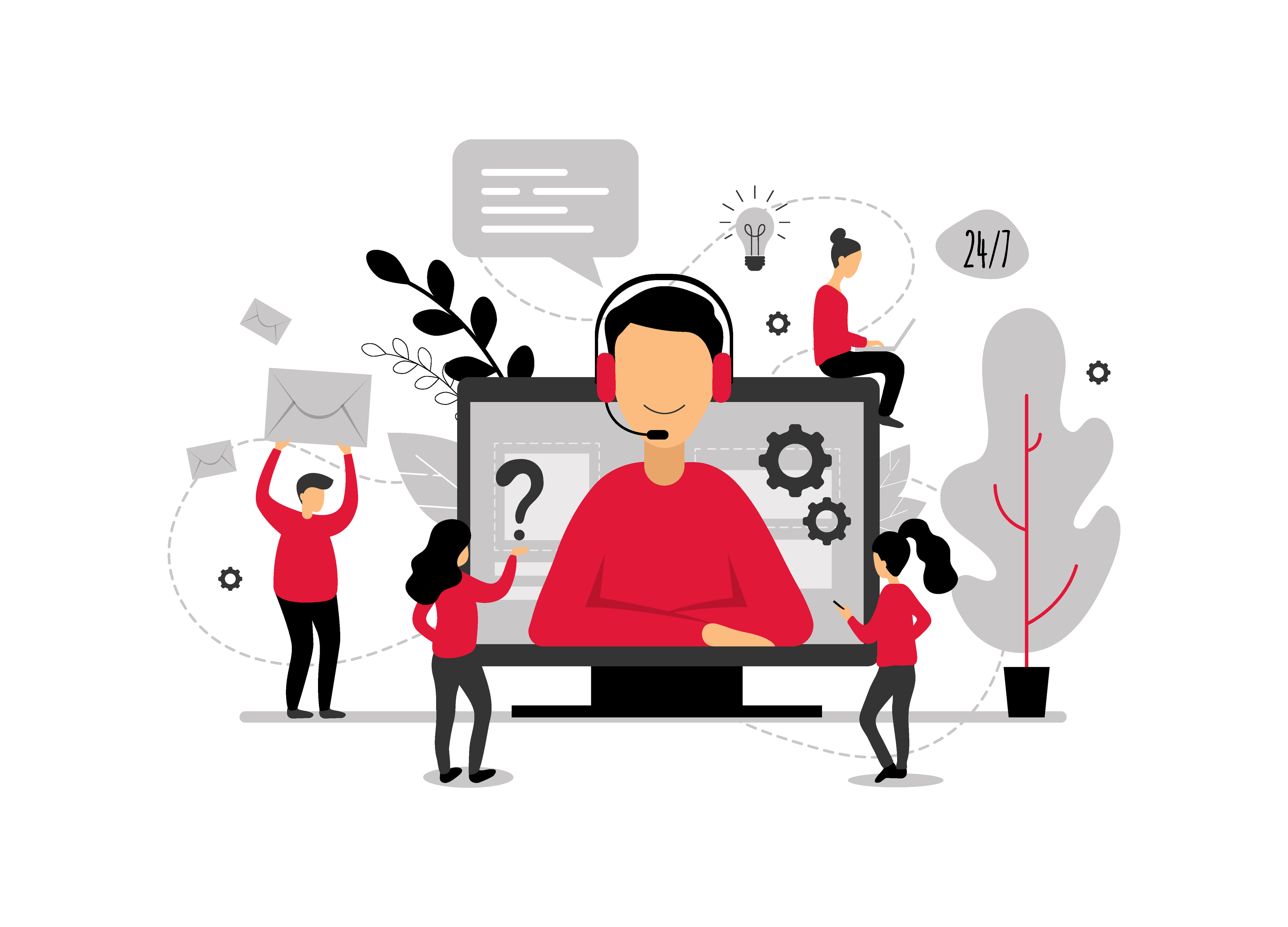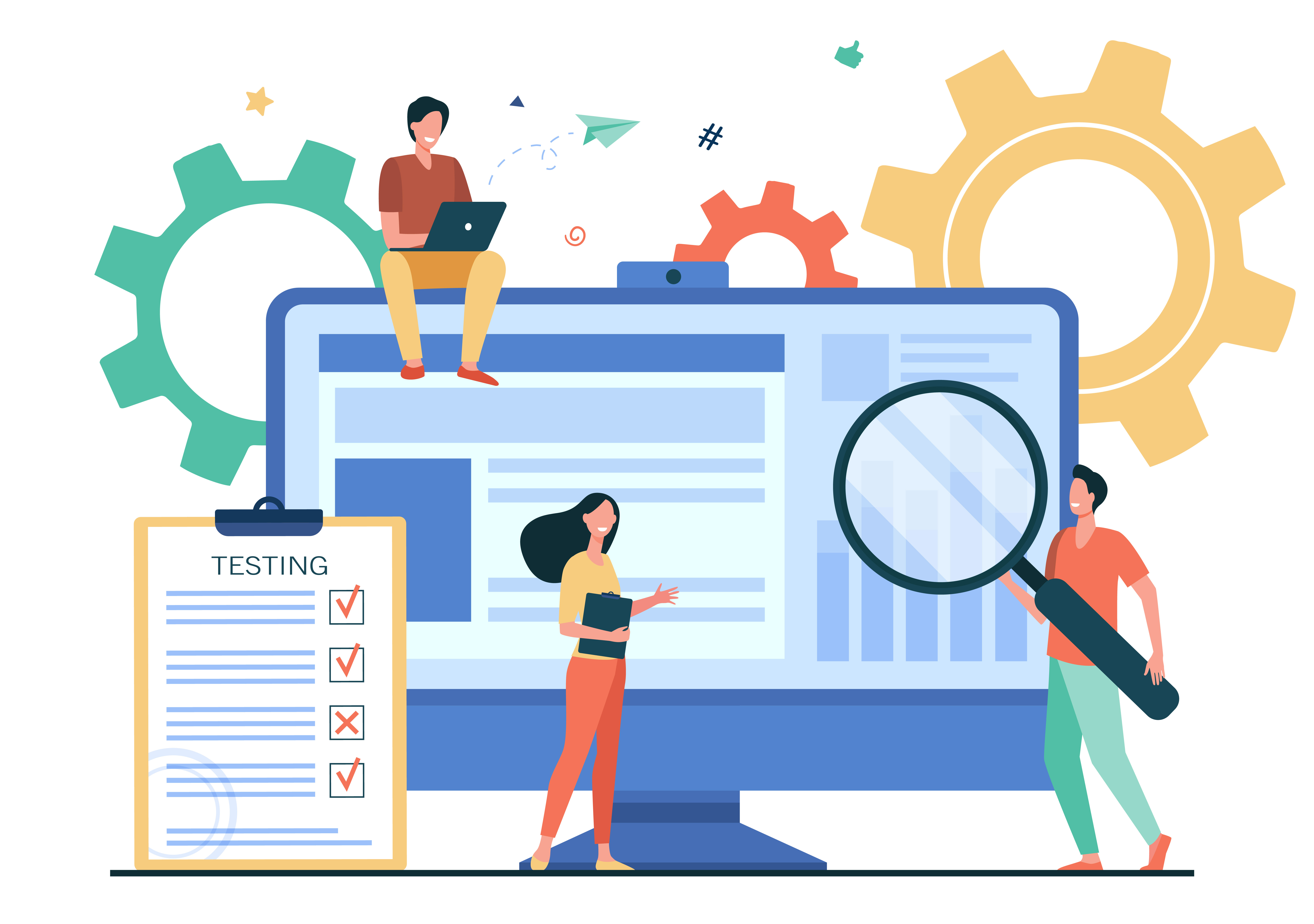Mastering Personalized Customer Service: A 2024 Comprehensive Guide
Today, consumers want to be seen and known for who they are rather than simply as numbers or faceless transactions. According to Accenture, 91% of consumers would rather shop with brands that recognize, remember, and provide relevant offers and recommendations. A great way of making consumers feel known and recognized is by tailoring core aspects of the customer journey to their wants, needs, and pain points. Stuck for a starting point? Why not try a more personalized approach to customer support? Before we get into how personalization can be utilized to increase customer happiness and brand loyalty, let’s take a look at the meaning of the word.
Personalization is a strategy that allows businesses to optimize their interactions with loyal customers with each customer’s individual preferences, behaviors, and experiences in mind. It enables companies to build connections and engagement with their customers, which, in the longer term, leads to loyalty and customer retention. Done right, it’s a powerful way of demonstrating just how much your customers matter to you – and how much you think and care about them. If a company is unable to establish long-term relationships with its customers, it will struggle to stay in business.
For best results, personalization should be applied throughout the buyer’s journey by marketing, sales, and customer support. To maximize the ROI of their marketing spend, companies can take a data-driven approach to product recommendations by offering suggestions based on customer purchase behavior, creating targeted email and social media campaigns, and leveraging automation and customized content. While the tactics may vary, the endgame is the same: creating (and curating!) an authentic, meaningful, and delightful experience for your customers. Implementing a personalized customer service strategy is crucial in this endeavor, as it focuses on using individual customer data to provide tailored, proactive, and customized experiences that build loyalty, trust, and satisfaction. This blog post focuses on how to deliver personalized customer service experiences to achieve that same outcome.
Why do customers expect personalized customer service?
Customers expect a personalized experience from customer service because it caters to their individual needs and preferences, making them feel valued and understood. In today’s data-driven world, customers are accustomed to tailored experiences from online retailers, streaming platforms, and more. Personalization not only saves time by presenting relevant choices but also enhances satisfaction and loyalty through personalized customer service interactions. These interactions, which include using the customer's name and providing personalized messages, foster a sense of connection and build trust between customers and businesses. Moreover, rewarding loyal customers with personalized customer service interactions increases the likelihood of meeting specific requirements, leading to higher customer retention and increased revenue through upselling or cross-selling. In essence, personalization is a fundamental component of exceptional customer experiences in the modern marketplace.
How to use personalization in customer support?
Let’s walk through some of the techniques that can be used to add personalization to customer support processes.
Segmentation: Customers can be segmented based on their user type, industry, location, or even company size. Support agents can gain insight into distinct characteristics of groups and personas based on their common activities and tailor their support and recommendations accordingly. For example, the COVID-19 pandemic led to a substantial increase in the number of people who were shopping online. Companies catering to e-commerce businesses can use this information to personalize their recommendations and support for such businesses. If you work with B2B e-commerce companies, having a deeper understanding of changes in the industry will enable you to deliver more relevant advice and support to your customers.
Customer activities: Modern customer support software enables support agents to view customer activities, customer health, past interactions with customer support, and product usage. With this information at their fingertips, support agents have everything they need to provide customers with the best solutions to their issues, improving customer relationship management. For customers with recurring issues, insight into product and user context enables customer service agents to frame their responses more empathetically to solve the issue permanently. Phrases like, “I see you’ve had this issue before; we can recommend a more lasting solution to this issue,” provide a powerful starting point for making customers feel seen, heard, and understood, and showing them that you take the issue seriously. This personalized support, facilitated by a customer service agent aware of the customer's support history, enhances the overall customer experience.
Understand customers: While having data on customer activities is a great way to jump-start customer service personalization, understanding customers can take personalization one step further. Support agents, especially customer service reps, can demonstrate their knowledge of each customer by understanding their preferences, purchase behavior, history, and activities. Customer service reps play a crucial role in maintaining a positive brand perception by using customers' names and preferences to build stronger relationships. Customers feel a deeper connection and sense of loyalty to companies that understand them and are often more willing to share more information in return.
Using real-time data analytics: To successfully gather up-to-date data from customers, companies need to invest in real-time data analytics software. Software that is capable of monitoring customer activities in real-time and developing patterns based on the data gathered is essential for building a solid personalization strategy. IrisAgent is a great starting point.
Benefits of personalization in customer support
What are the business values that companies can expect when they employ personalization strategies?
Meet customer expectations: In the ever-evolving world of business, it can be challenging to meet customer expectations. Companies that gain a deeper understanding of their customers and personalize their interactions with them are much more likely not only to meet their customers’ expectations but surpass them. This would likely improve the company’s Net Promoter Score and reduce customer churn.
Customer loyalty: Happy customers stay for the long haul. If all their needs are being met, customers are far less likely to look elsewhere. Companies that have up-to-date, relevant information on their customers and a deep understanding of their wants, needs, pain points, and experiences have everything they need to provide excellent customer support. The result? Delightful customer experiences and a boost to customer loyalty in the long run.
Efficient customer support: If your support agents have real-time, accurate data on their customers, they are much more likely to be able to provide the right solutions in a timely manner. For example, a network provider with information on a customer’s phone model and location can provide a more accurate and detailed explanation of why the customer continues to have internet issues and proactively take whatever steps are needed to resolve it.
Measuring and Analyzing Personalization Success
Effectively measuring and analyzing the success of delivering personalized customer service initiatives is crucial for refining strategies and enhancing the overall customer experience. In this section, we explore key metrics, feedback mechanisms, and analytical approaches to gauge the impact of personalization and customer engagement efforts.
A. Key Performance Indicators (KPIs) for Personalized Customer Service
Customer Satisfaction (CSAT) Scores:
Definition: CSAT scores measure the satisfaction level of customers based on their personalized interactions.
Analysis: Regularly assess CSAT scores to understand how well customers perceive the personalized experiences. Monitor trends and fluctuations to identify areas for improvement.
Net Promoter Score (NPS):
Definition: NPS gauges the likelihood of customers recommending the brand after experiencing personalized service.
Analysis: A positive NPS indicates that customers not only appreciate personalization but are also likely to become brand advocates. Track NPS alongside personalization initiatives to measure their impact on customer loyalty.
Conversion Rates:
Definition: Analyzing the percentage of personalized interactions that lead to desired outcomes, such as purchases or conversions.
Analysis: Identify which personalized strategies contribute most to conversion rates. Adjust and optimize personalized campaigns based on high-performing segments.
B. Gathering Customer Feedback and Satisfaction Metrics
Surveys and Feedback Forms:
Approach: Deploy targeted surveys and feedback forms to collect specific insights on personalized experiences.
Analysis: Analyze responses to identify patterns and trends. Pay attention to both positive feedback and areas where customers feel personalization could be improved.
Customer Interviews and Focus Groups:
Approach: Conduct interviews and focus groups to gather qualitative insights into personalized service.
Analysis: Use the qualitative data to uncover nuances in customer preferences and sentiments. This deeper understanding can inform strategic adjustments to personalization tactics.
C. Predictive Analytics for Future Personalization Strategies
Predictive Modeling:
Approach: Utilize predictive analytics to forecast future customer behaviors based on historical data.
Analysis: Anticipate customer needs and preferences, enabling proactive personalization. Adjust strategies based on predictions to stay ahead of evolving customer expectations.
Machine Learning Algorithms:
Approach: Implement machine learning algorithms to refine personalization recommendations.
Analysis: Continuously train algorithms with updated customer data to improve the accuracy of personalized suggestions. Monitor the performance of machine learning models to ensure they adapt to changing customer behaviors.
As businesses deliver personalized customer service experience, a robust measurement and analysis framework is essential for ongoing success. By strategically employing KPIs, gathering customer feedback, using customer insights, leveraging analytics, and embracing predictive modeling, organizations can not only gauge the effectiveness of their current personalization efforts but also lay the foundation for continuously improving and staying at the forefront of customer expectations.
How can one provide personalized customer service?
To provide personalized customer service, businesses can employ several strategies:
Data Utilization: Collect and analyze customer data to understand their preferences, purchase history, and behavior. Customer service agents play a crucial role in analyzing this data to deliver personalized service that meets individual customer needs.
Customization: Tailor product or service recommendations, communication, and offerings to align with individual customer needs.
Segment Customers: Group customers with similar characteristics or interests and create personalized strategies for each segment.
Personalized Communications: Address customers by their name and send personalized emails, messages, or offers based on their interactions. This approach enhances customer service interactions by making customers feel valued and appreciated.
Predictive Analytics: Use predictive modeling to anticipate customer needs and proactively address issues.
Training and Empowerment: Train support agents to provide customized assistance and empower them to make personalized decisions. Customer service reps are essential in maintaining a positive brand perception through personalized and efficient support.
Feedback Collection: Act on customer feedback to continuously refine and enhance the personalization of your service.
By implementing these practices, businesses can create memorable, personalized customer experiences that foster loyalty and loyal customer satisfaction.
A personalized customer service strategy is vital for guiding all personalization efforts, ensuring that every customer interaction is tailored, proactive, and customized to meet individual needs, thereby building loyalty, trust, and satisfaction.
Companies that understand the value of personalization invest in a technology that would enable them to gather and process customer information efficiently and accurately. IrisAgent takes personalized customer support to a new level by resolving tickets with product and user context and monitoring customer health in real time. Book a demo to get started immediately!
Personalized Customer Experience: Frequently Asked Questions
What exactly is personalization in customer service, and why should businesses prioritize it?
Personalization in customer service involves tailoring interactions and offerings to meet individual customer needs and preferences. Businesses should have customer service strategy to prioritize it because it enhances customer satisfaction, fosters loyalty, and differentiates the brand in a competitive market.
How can businesses effectively gather and leverage customer data for personalized service without compromising privacy?
Businesses can employ ethical data collection methods through customer consent, use secure platforms to gather customer feedback and anonymize sensitive information. Striking a balance between personalization and privacy involves being transparent with customers about data usage and adhering to data protection regulations.
What are the key benefits of implementing personalized customer service for both businesses and customers?
For businesses, personalized customer service leads to increased customer retention, higher customer lifetime value, and a positive impact on brand reputation. Customers benefit from tailored experiences, relevant recommendations, and personalized customer service goes with a sense of being valued.
How can technology, such as AI and machine learning, deliver personalized customer service experiences?
AI and machine learning algorithms can analyze large datasets to identify customer preferences, predict future behavior, and automate personalized recommendations for existing customers. These technologies empower businesses to deliver more accurate and timely personalized experiences at scale.
What steps should businesses take to create personalized customer service from scratch?
Crafting personalized customer service experiences involves understanding the target audience, segmenting customers based on preferences and behaviors, implementing a robust CRM system, and establishing communication channels for personalized customer interactions throughout.




